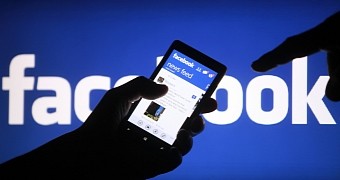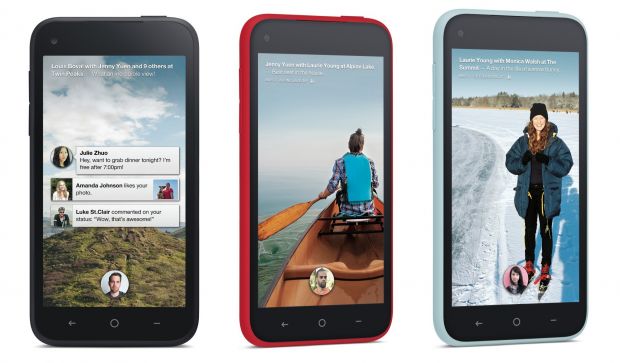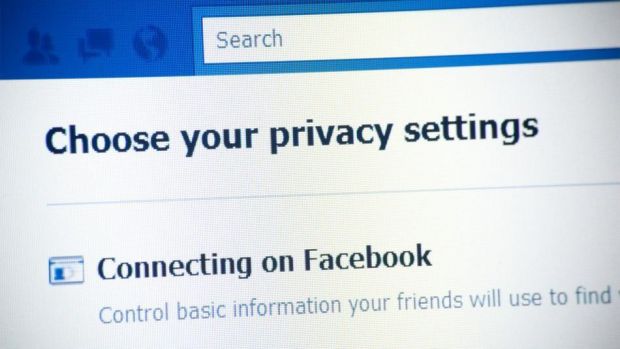Facebook is worth more than $200 billion (€150 billion), according to figures that were revealed in late 2014, so it's becoming clearer that everything that Mark Zuckerberg touches turns to gold.
Statistics published on the official Facebook information page show that the social network has more than 1.39 billion monthly active users, out of which 1.19 billion are also using their mobile devices to post new messages, photos, play games, or chat with their friends.
Needless to say, Zuckerberg, just like any other billionaire in charge of a tech giant, has been looking into ways to expand the business beyond the core social network for many years in a row, but until now, it's all about Facebook and nothing more.
Sure, Zuckerberg has indeed invested in a number of additional projects related to Facebook or not, but there's one side of the industry where the company is yet to become relevant. It tried to become so, but it failed.
And now, all signs are pointing to a second attempt.
A Facebook phone is not a new thing, and the social network more or less tried to make this real with a number of projects, each of which failed to enjoy the success that Zuckerberg hoped to get.
Facebook Home is probably the biggest attempt at conquering the mobile world, but although it was unveiled in April 2013, critics claim that it never managed to meet Facebook's expectations. In essence an Android launcher that allows users to post content quickly to their wall, Facebook Home was pre-installed on the HTC First and can still be downloaded from the Play store free of charge.
But once again, Facebook Home was never an attempt to take over the mobile industry.
Facebook tried to become relevant in mobile with the HTC First, a device it built in collaboration with HTC, which turned to be the same thing as Windows Vista for Microsoft: a complete failure that was discontinued only a few months after launch.
The HTC First, also known as the Facebook Phone, was launched in April 2013, but later the same year, AT&T, the only carrier selling the device, decided to offer it completely free of charge because of underwhelming reception.
Below are the key technical specs of the Facebook Phone, which was undoubtedly a mid to low-end device:
| Operating System | Android 4.1 Jelly Bean |
| Display | 4.3 inches, 720 x 1280 pixels |
| Processor | Qualcomm MSM8930 Snapdragon 400 |
| RAM | 1 GB |
| Storage | 16 GB |
| Cameras | Rear: 5MP; front: 1.6MP |
| Battery | 2000 mAh |
WhatsApp voice and video calling
WhatsApp, currently the number one mobile messaging service, with more than 700 million active monthly users and owned by Facebook, has recently gotten voice calling support, so you can now call your contacts by means of an Internet connection and without using your carrier. This is obviously a strong hit that carriers around the world received from WhatsApp, but their bad dream is unlikely to end here.
Video calling will definitely arrive in WhatsApp sooner or later, and that will be the moment when Facebook could become relevant in the mobile industry with a product that could kill carriers but, at the same time, help users around the world: a truly innovative Facebook Phone.
Let's take everything one at a time to see how a Facebook Phone could change our lives.
There will be three different things that would be critical to a Facebook Phone: WhatsApp, Facebook integration, and Wi-Fi.
First and foremost, WhatsApp. With voice and video calling, WhatsApp could allow a Facebook Phone to provide the same thing as any other phone out there but without the need for a SIM. Without a SIM, you won't be tied to a contract, you won't have to pay additional fees, and you'd be able to talk on the phone as long as you want, at any time you want.
Obviously, to do this you'd need an Internet connection, but this requirement is closely related to the other two. A SIM with an assigned number is now required to use WhatsApp, right? Right. But on a Facebook Phone, all you'd need would be a Facebook account. And here's where the Facebook integration comes into play.
“A Facebook Phone can work without a SIM, but you can still have one just in case. Calls and Internet would be entirely free thanks to your "friends."”
With Facebook integration, a Facebook Phone with WhatsApp deeply integrated would allow you to call and chat with your contacts at any time, without paying a single cent to a carrier. And without the need for a SIM. The more friends you have on Facebook, the more people show up on WhatsApp, and this is one of the ways the social network could try to monetize this. More friends, more contacts, more ways to talk for free.
But to use WhatsApp without a SIM and using your Facebook contacts, you obviously need a wireless network connection with Internet access. Enter free Wi-Fi.
Facebook is already working to bring free Internet in some poor countries across the world, but the Facebook Phone would open new opportunities in this regard.
What if a Facebook Phone can allow Facebook users to share their Internet connection with other Facebook users? Read on if you find this intriguing.
Facebook users would be provided with an option to share their Internet connection either with friends or with everyone else. Of course, for privacy reasons, there would also be options not to do that, but that's not the purpose of a free Wi-Fi connection. Sharing is caring, after all.
So if you share your Wi-Fi Internet connection, no matter where you are, where you work, or where you live, anyone with a Facebook phone would be able to connect to your network and call friends or chat with them, via WhatsApp, without paying a single cent.
Passwords don't even need to be exposed. Facebook would take care of everything, so passwords would be encrypted all the time, only that the phone can connect to a wireless network whenever one is found.
In other words, the whole plan would be something like this:
Facebook Phone - WhatsApp integrated with Facebook account - shared Wi-Fi - free calls
Cheap as chips
A Facebook Phone would have to be annoyingly (for other manufacturers) cheap. It doesn't even matter if Facebook loses money with it because, with such a plan, more people would join the social network to make free phone calls and get free Internet than Zuckerberg has ever imagined.
If a Facebook Phone becomes available for, let's say, $100 (€75), and the company is losing money with it, there are other ways to cut expenses and still stay big on profit. A Facebook Phone could cause direct losses, but indirectly, it could bring in more money than ever.
The plan would be to convince as many users as possible to join Facebook, and with a Facebook Phone that would really be possible. Just imagine that you'd travel in a different country, and those huge roaming fees would no longer be there just because you have a Facebook Phone with free calls and free Internet that you can use all the time. The more friends you have on Facebook, the bigger the chances to connect to a free Wi-Fi. And this is how a connected world could come true.
There's only just one big issue that Facebook would need to deal with in case such a plan ever gets adopted: carriers and competition laws. Facebook could easily become the target of anti-trust investigations, complaints from carriers, and telecom companies would see their profits going down just because a social network launched a phone that provides free calls and messaging using the power of its community.
As we all know, there are ways to stop that from happening, and we have no doubt that carriers would use them to stop such a Facebook Phone from reaching the market. But we're also very sure that Zuckerberg can find a way to make this happen without breaking the law.

 14 DAY TRIAL //
14 DAY TRIAL // 



